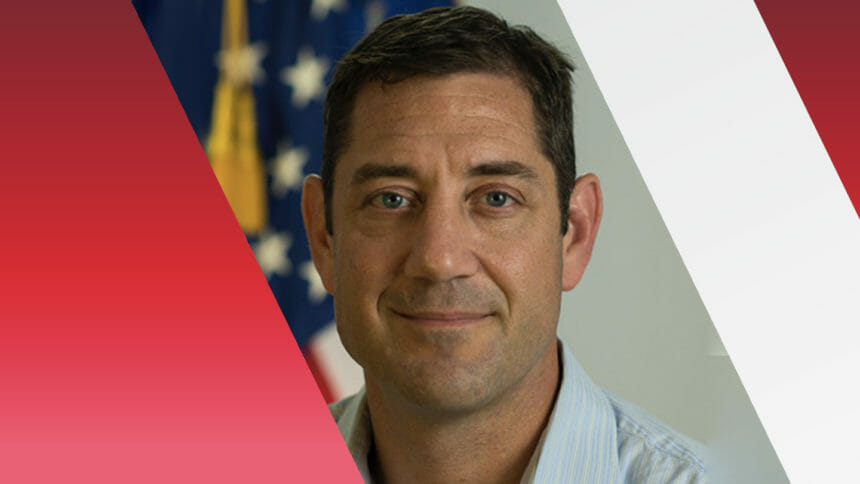
OXON HILL, MD — Federal regulators are expecting nursing homes to do more to “maximize visitation,” according to a top official at the Centers for Medicare & Medicaid Services.
Evan Shulman, director of the CMS Division of Nursing Homes, said Tuesday that his agency is looking for ways to “help” providers expand visitor access. He also reminded providers that existing guidance issued on visitor restrictions isn’t necessarily meant to be used at all times or in all places.
Instead, a current memo on visitation policies for non-outbreak situations sets out “suggestions” — including rigid scheduling blocks — that providers “may” use to structure visits in ways that could prevent the spread of COVID-19, Shulman said.
Providers should “try to get a little more nuanced about it,” he said. “We don’t need to automatically restrict visitation.”
He spoke to an overflow crowd that necessitated the use of at least two extra conference rooms at the annual American Health Care Association / National Association for Assisted Living convention Tuesday afternoon. He laid out five issues CMS is currently focusing on. In addition to visitation policies, they include:
- Increasing vaccination rates among nursing home staff
- Monitoring core principles of infection control and prevention
- Getting back to non-COVID compliance and resumption of surveys nationwide
- Staffing levels and staffing quality
While families across the country have clamored for more access to their loved ones amid a resurgence of COVID cases, some providers fear allowing in visitors (especially unvaccinated ones) could undermine their infection control efforts and spread the virus.
Shulman said CMS is reviewing current guidance for possible changes that would encourage broader visitation, adding that providers who are overly restrictive and still keep visitors out under a blanket policy could be considered non-compliant. Excessive isolation has been identified as a detrimental trait that has been amplified under pandemic conditions.
He told McKnight’s Long-Term Care News that upcoming holidays could call for a nuanced approach, such as assigning time slots, because it could otherwise be difficult to maintain physical distance and allow enough space for all visitors on such high-traffic days. Otherwise, visits don’t typically require the same rigidity.
“If you can create visitation in a way that allows you to physically distance, there’s really no reason to restrict visitation,” he said, while also noting the importance of hand hygiene and masking.
Shulman reiterated that providers can ask visitors if they are vaccinated and require them to mask, but they cannot restrict visitation based solely on vaccination status. Instead, he urged providers to use the question as a way to have a conversation about vaccines and encourage their uptake.
Focus shifting back to non-COVID concerns
Much of CMS’ attention of late has been focused on COVID-19 rules and regulations, but Shulman told McKnight’s he could not comment on a staff vaccination mandate rule expected this month while it is in the rule-making process.
He did say, however, that the agency is again coaching states on restarting standard surveys and working through a backlog of complaint surveys.
He predicted that survey results could be challenging because data CMS has captured indicates declines in resident mobility, increases in weight loss and pressure ulcers, and higher use of antipsychotic medications since the pandemic started.
He urged providers to refocus on staff training, reduce turnover, review existing policies and begin preparing for further implementation of Phase 3 of the Rules of Participation. Expected guidance was put on hold because of the pandemic but continues to be refined internally at CMS.
While Shulman praised providers for their ingenuity and resourcefulness during the pandemic, he said operators need to prepare for a return to a more normal compliance environment, meaning a return to some specific requirements that might have been waived or otherwise de-emphasized during the pandemic.
“None of this should be surprising,” he said.




